Dear Friends of RAIHN,
Six months into the COVID pandemic and life has changed for all of us. It has been a time of reflection, as much of our daily life has been put on hold and we witness the impacts of a global health crisis, disproportionately affecting people of color. It has also been a time of increased awareness of the divisions in our country, with weekly accounts and images of senseless violence inflicted against African Americans.
So how does this relate to RAIHN and the services we provide to the community? As our volunteers and staff can attest to and statistics bear out, a majority of the families served by RAIHN, whether homeless or facing potential homelessness, are people of color. The following are percentages of families served in 2018 and 2019: 2019 – 77% African American, 10% Hispanic/Latino, 8% Caucasian, and 5% multi-racial, and 2018 – 74% African American, 11% Hispanic/Latino, 9% Caucasian, and 6% multi-racial. Not coincidentally, the majority of children and families who experience homelessness in the City of Rochester are people of color. The violence against black individuals and the disproportionate deprivation of adequate housing for people of color both result from institutional or systemic racism.
Systemic racism is particularly apparent in Rochester, as we live in one of the most racially segregated cities in America. This bears out when studying housing in Rochester, both historically and currently. In reviewing our community’s history, restrictive racial covenants and redlining that occurred through the Fair Housing Administration and VA loans in the 1930’s and 40’s and continued with the 1968 Fair Housing Act translate directly into one of the highest rates of concentrated extreme poverty in the nation. In fact, those areas of the city that were redlined in the 1930’s remain 92% occupied by people of color today…92%. Which means a divided city, one side more likely to be white, privileged, less likely to be stopped or harassed by law enforcement and the other more likely to be black or brown, marginalized, and at greater risk for racially charged encounters with or death from law enforcement.
As a society and as an organization within the greater society, we have a choice when we think about race and those invisible, but marked lines that separate our neighborhoods. Either we believe there is an inherent reason that people of a specific ethnicity or race are disproportionately poor, unemployed or underemployed, in prison, in inadequate housing, or homeless, or we believe that there are systemic causes at play. As Claas Ehlers, CEO of Family Promise states, “We cannot accept the former, but then we must NOT tolerate the latter.”
And we will not tolerate it. RAIHN believes Black Lives Matter and we support the Rochester Black Agenda Group’s declaration that “racism is a public health crisis”. As we work toward ensuring every family has access to safe, adequate housing, we will do so in a way that promotes inclusion and equity. This fall, RAIHN will convene a Racial Equity and Advocacy Committee to ensure our actions reflect our commitment. The purpose of this committee is threefold: (1) Encourage conversations on racism with staff, the Board of Directors, and volunteers; (2) Review internal policies, procedures, and practices to ensure racial equity is a core element of RAIHN’s work; and (3) Build capacity within the organization to enact change by advocating for relevant policies that improve the health and lives of Black and Brown communities.
Please, join RAIHN in its stance against racial injustice, for Daniel Prude and his family, for the families we serve, and for all families affected by inequality and racism in our community.
Sincerely,
Kim Hunt-Uzelac, Executive Director, Sharon Burke, RAIHN Board Chair, & RAIHN Board of Directors
There will come a time when racist ideas will no longer obstruct us from seeing the complete and utter abnormality of racial disparities. There will come a time when we will love humanity, when we will gain the courage to fight for an equitable society for our beloved humanity, knowing, intelligently, that when we fight for humanity, we are fighting for ourselves. There will come a time. Maybe, just maybe, that time is now. (Excerpted from “Stamped from the Beginning: The Definitive History of Racist Ideas in America", by Ibram X. Kendi.)

